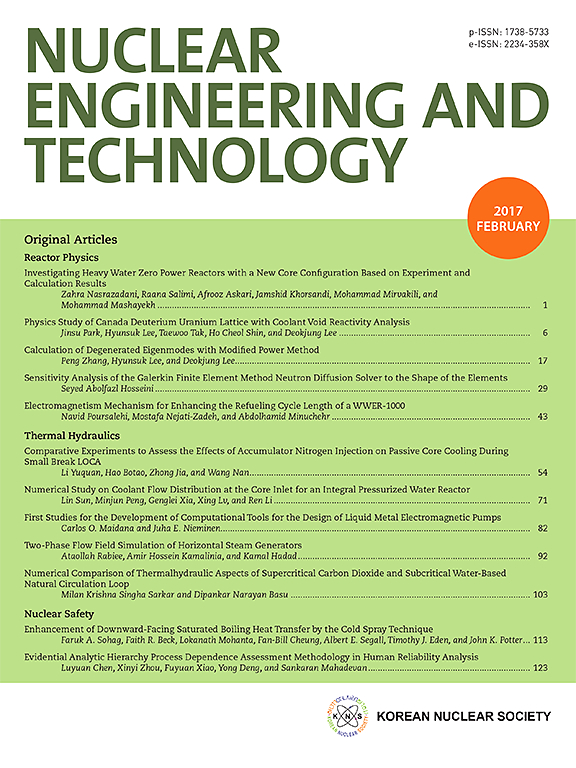关于核乏燃料贮存设施安全/风险的确认偏差、信息选择和信念强化
IF 2.6
3区 工程技术
Q1 NUCLEAR SCIENCE & TECHNOLOGY
引用次数: 0
摘要
本研究调查了核乏燃料(NSF)储存设施信息选择中的确认偏差现象。我们对韩国的 321 名居民进行了在线调查。他们被要求在接触更多信息之前和之后,评估自己对核燃料储存设施安全/风险的看法。我们的研究结果表明,初始信念与确认偏差之间存在正相关,这表明研究参与者倾向于选择与他们对设施安全/风险的信念相一致的文章。对政府的信任与确认偏差呈负相关,这意味着对政府信任程度较高的居民更有可能选择与其最初信念相反的信息。最后,本研究发现了个人对国家科学基金会储藏设施的安全/风险的信念具有自我强化和潜在极化的性质,因为居民在阅读了自选文章后,他们最初的信念得到了强化,而不是受到挑战。本研究讨论了公共政策和沟通策略对提高国家科学基金会储藏设施接受度的影响。本文章由计算机程序翻译,如有差异,请以英文原文为准。
Confirmation bias, information selection, and belief reinforcement about the safety/risk of nuclear spent fuel storage facilities
This study investigates the phenomenon of confirmation bias in information selection in the context of nuclear spent fuel (NSF) storage facilities. An online survey was administered to a sample of 321 residents in South Korea. They were asked to assess their beliefs about the safety/risk of NSF storage facilities before and after their exposure to additional information. Our findings show a positive association between the initial belief and confirmation bias, suggesting that the research participants tend to select articles consistent with their beliefs about the safety/risk of the facility. Trust in government is negatively related to confirmation bias, implying that residents with a greater level of trust in government are more likely to choose information opposing their initial beliefs. Finally, this study finds the self-reinforcing and potentially polarizing nature of individuals' beliefs about the safety/risk of NSF storage facilities as residents’ initial beliefs are reinforced rather than challenged after they reviewed self-selected articles. Implications for public policy and communication strategies related to improving the acceptance of NSF storage facilities are discussed.
求助全文
通过发布文献求助,成功后即可免费获取论文全文。
去求助
来源期刊

Nuclear Engineering and Technology
工程技术-核科学技术
CiteScore
4.80
自引率
7.40%
发文量
431
审稿时长
3.5 months
期刊介绍:
Nuclear Engineering and Technology (NET), an international journal of the Korean Nuclear Society (KNS), publishes peer-reviewed papers on original research, ideas and developments in all areas of the field of nuclear science and technology. NET bimonthly publishes original articles, reviews, and technical notes. The journal is listed in the Science Citation Index Expanded (SCIE) of Thomson Reuters.
NET covers all fields for peaceful utilization of nuclear energy and radiation as follows:
1) Reactor Physics
2) Thermal Hydraulics
3) Nuclear Safety
4) Nuclear I&C
5) Nuclear Physics, Fusion, and Laser Technology
6) Nuclear Fuel Cycle and Radioactive Waste Management
7) Nuclear Fuel and Reactor Materials
8) Radiation Application
9) Radiation Protection
10) Nuclear Structural Analysis and Plant Management & Maintenance
11) Nuclear Policy, Economics, and Human Resource Development
 求助内容:
求助内容: 应助结果提醒方式:
应助结果提醒方式:


